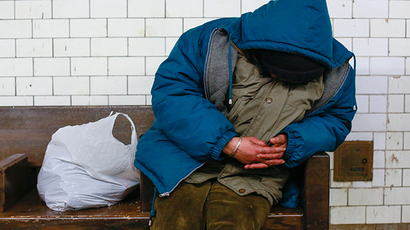ACLU seeks to end Michigan judge's 'pay-or-stay' sentencing

The American Civil Liberties Union of Michigan has asked a court to curb a Detroit-area judge's "unconstitutional" practice of jailing defendants who cannot afford to pay fines. A higher judge has urged the two sides to reach a settlement.
Macomb County Judge James Maceroni presided over a hearing Monday in which the ACLU sought "superintending control" over 38th District Court Judge Carl Gerds, of Eastpointe. Gerds gives jail time to those who are too poor to pay fines, the ACLU has alleged.
"Pay-or-stay" sentences are unconstitutional, the ACLU argued, unless a judge has definitively determined that a defendant does, in fact, have the resources to pay a fine. The system is akin to a debtors' prison, the ACLU said, and Judge Gerds must be prohibited from continuing the practice.
"A 'pay or stay' sentencing practice, when carried out without regard to defendants' ability to pay is unconstitutional because it creates a two-tier system of justice: persons of means pay money and remain free, whereas poor people who are unable to pay go to jail," the ACLU said in court filings.
READ MORE: Judge scares criminal straight by saying he’d be raped, become someone’s ‘b**ch’ in jail
On Monday, Judge Maceroni called on the ACLU and Gerds to come to a settlement agreement in the case, AP reported. Tom Rombach, attorney for Judge Gerts, acknowledged that his client has made some mistakes, and that he has begun to offer payment plans to defendants.
"Judge Gerds now conducts an individual inquiry into each criminal defendant's ability to pay and allows good faith payment plans toward satisfaction of fines and costs," Rombach said in his court motion, according to the Detroit Free Press.
US #jail system stacked against poor, ill #nonviolent offenders - report http://t.co/uzDL1MkNzopic.twitter.com/bG9bxk8a3m
— RT America (@RT_America) February 11, 2015A higher court had previously ordered Gerds to cease the sentencing of a singe mother, Donna Anderson, whom he fined $455 for failing to license her dogs. She justifiably feared she would face jail time, the ACLU said, as Gerds had previously sentenced a man to 30 days for not being able to pay a $334 jaywalking fine.
READ MORE: ‘Jailhouse shakedown:’ ACLU sues Mississippi town that jails poor in debtor’s prison
In July, the ACLU complained on behalf of Anderson. Others – possibly hundreds – have faced similar pay-or-stay choices, the organization said, without being given another option such as community service.
“We’re not saying there shouldn’t be punishment,” Michael Steinberg, legal director of the ACLU of Michigan, told the Associated Press in July. “What we’re saying is you cannot send someone to jail because they’re too poor to pay a fine. Some sort of alternative sentence should be fashioned — community service or an extended payment schedule.”
In January, Gerds sentenced one man to jail because he could not immediately pay $1,500 for driving without a valid license and insurance. A circuit court judge later overturned the decision, sending the case back to Gerds for resentencing. Gerds then replaced the fine with a punishment of 93 days in jail. The unfortunate offender spent 18 days in jail before being set free by the circuit court judge, following another appeal by his attorney.
"I think that the defendant has been punished enough because he's done 18 days because he was poor and that's repulsive to me," Macomb County Circuit Judge Mary Chrzanowski said during a July hearing.















